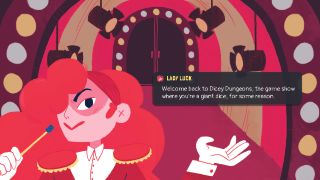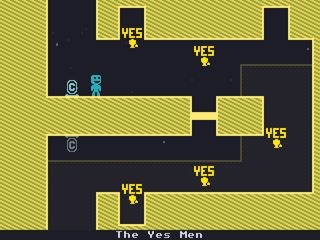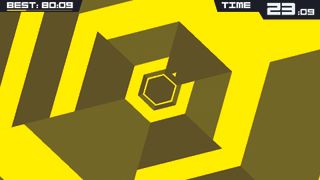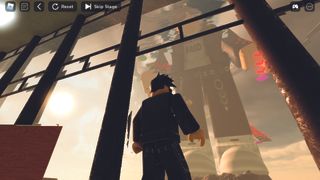How Terry Cavanagh bet it all on the simple joy of platforming
"If art doesn't make you cringe a little bit, then you've not really exposed or pushed yourself as much as you could."


his article first appeared in PC Gamer magazine issue 360 in August 2021, as part of our 'Positive Influence' series, where every month we chat to a different developer about the inspirations and unexpected connections behind their work.
In 2007, on the eve of what is now known as the Great Recession, a market risk analyst decided to quit his job and embark on a career which, from a risk mitigation perspective, his colleagues would have advised against.
"I was young," Terry Cavanagh says. "A lot of my friends were doing things like going off to Australia for a year. At the time, the whole indie developer thing was just starting to really kick off. I saved up some money and decided to give it a go. The decision was my version of going to Australia." It didn't go very well. After many failed starts and projects that didn't pan out, Cavangh ran out of money. He borrowed some cash from the bank in order to keep going, then ran out of that too.
"I'd come to the end of the whole thing, where I just had to say, 'This is not working out, I have to go and get a real job,'" he says. "And I was working on one last project, which was this little gravity-flipping platformer."

VVVVVV was Cavanagh's breakthrough, but it was also a break from form. His previous games had been serious and arty, part of a nascent indie scene reacting against AAA power fantasies. His most successful experiment, a Game Boy-esque platformer called Don't Look Back, had been a riff on the ancient Greek legend of Orpheus and Eurydice, about storming into Hades with a handgun. When the player led their dead lover back to the surface, they were confronted by the image of themselves still standing impotently at the graveside, as they had been at the beginning of the game, grief undefeated.
"I just remember being very proud of the idea that what you literally do in the game is play out this fantasy," Cavanagh says. "I wanted to be edgy and taken seriously. I don't know how I feel about all that now, [but] if art doesn't make you cringe a little bit, then you've not really exposed or pushed yourself as much as you could."
Rolling Sixes
Faced with financial failure, Cavanagh rejected avant garde storytelling and embraced throwaway fun instead. VVVVVV was self-consciously simple, a pop song of a platformer that picked just one, joyous mechanic—a button that flipped the polarity of your character—and honed it to perfection. "It turns out that's really a better direction," Cavanagh says. "My games got better when I started thinking of them that way."

The result was one of the great crossover hits of indie's first wave. Alongside Super Meat Boy, VVVVVV established a new approach to platforming difficulty, which matched brutal challenges to player-friendly checkpointing and instant resets. You can still see its influence in Maddy Thorson's Celeste, which is fitting since Cavanagh had been "influenced pretty heavily" by Thorson's early projects in the '00s. "It's one of those design things that feels obvious in hindsight, but wasn't always," he says.
The biggest gaming news, reviews and hardware deals
Keep up to date with the most important stories and the best deals, as picked by the PC Gamer team.
VVVVVV established a new approach to platforming.
After years working with metaphor to evoke complex emotions, VVVVVV's less cerebral approach somehow hit the spot emotionally too. Its one-dimensional cast emoted in binary—smiley face, sad face—in a way that bypassed the brain and went straight to the heart. "I wanted the characters to all have one personality that I pushed all the way to 11," Cavanagh says. "Victoria was always sad and totally inconsolable, and Vermillion was up for anything and happy to go exploring. There's no depth to them."
The story of VVVVVV's creation has become a pattern in Cavanagh's career since. Super Hexagon was a break from more serious work. Though Cavanagh has built many downbeat prototypes, the prospect of readying them for commercial release rarely appeals. "It's more fun to work on the other stuff," he says. Who would choose to tinker under dark clouds rather than sunny skies?

Cavanagh's gameography might be made up of repeating cycles, but one thing appears to have changed. He's no longer looking to escape from the "boring" job he took after college. In fact, as he goes into an explanation of Dicey Dungeons' approach to RNG, he sounds every bit the market risk analyst, "It's about mitigating randomness," he says, "and taking control of the odds."
Most Popular

